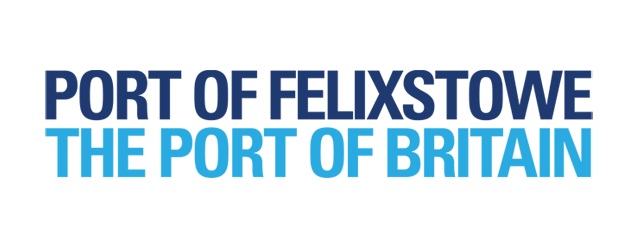The energy and utilities industries are fundamental to the wellbeing of the UK economy. Most of the time we take them for granted, we are so used to having energy and water supplies on demand that we only notice when something goes wrong.
In the next 15 years, the energy and utilities sector will need to recruit over 40,000 people to replace those who are retiring or leaving organisations for new opportunities.
Employers in the energy and utility sector are committed to safeguarding the environment for future generations and providing a high standard of service for their customers. Taking into account the ageing workforce, infrastructure expansion plans and the introduction of new technologies across all industries, it is now more important than ever for employers to focus on attracting the brightest young talent and up-skilling their workforce to keep the UK running.
Key to this will be the recruitment of graduates in disciplines such as electrical, design, power system, mechanical, and commissioning engineering as well as in environmental subjects such as environmental impact assessment, ecologist, geophysics and ornithologists. High-level business skills will also be highly sought-after, including business development, project managers, planners, and PR and communications.
Demand is currently high and is expected to increase across the sector for these skilled engineers, technicians and scientists, as well as for operative and sales/customer care staff with the flexibility and adaptability to cope in an ever-changing working environment.
Opportunities available in the energy and utilities industries
Gas
There are interesting and secure career opportunities in the gas supply industry. It takes a lot of skilled people to ensure that gas is transported and used safely and efficiently to homes and businesses, and you could be one of those people.
The gas industry is divided into two sub-sectors. Gas transmission and distribution covers all activities to do with the journey that gas makes from the point of origin, through the National Transmission pipeline and into local Gas Distribution Networks (GDN). Gas utilisation includes the installation and maintenance of gas-fired appliances, meters and pipe work in homes, commercial and industrial premises by gas fitters/ installers, who are all Gas Safe Registered engineers.
You can choose from many different types of roles in the gas industry, such as:
Network Operatives assist in connecting homes and businesses to the gas network. They locate digging positions, excavate roads and lay, repair and relay new pipe systems, then repair holes and pavements once the work is complete.
Gas Network Service and Mains Layers install, maintain and ensure the safety of a network of gas pipelines from suppliers to homes and businesses.
Network Operations Managers provide the co-ordination, planning and support required to ensure the safe, efficient and cost effective management of network operations in gas Transmission and Distribution.
Gas Service Engineers (Domestic and Commercial) work in homes and businesses to carry out activities such as, installing, commissioning, servicing and maintaining pipe work, central heating boilers and systems, gas fires, cookers, air heaters, catering appliances, radiant heaters and more.
Gas Emergency Engineers respond to public reported gas escapes to determine the source of any possible gas leak, both inside or outside the property. They ensure the installation is safe and protect people and property.
Getting started
Apply to an employer for a job or work experience. All businesses, and the people they employ to work on consumers’ gas appliances must be registered with Gas Safe Register in order to work lawfully.
Power
Creating power is one of the most important activities on the planet. Without it, we simply wouldn’t be able to function. Our iPods and TVs wouldn’t exist, industry and commerce would come to a grinding halt; we’d barely recognise our healthcare.
In ten years’ time (in the UK alone), we’ll only be able to generate a fraction of the power that we need. It is essential that we find new ways to create affordable, low carbon power, as well as attract more talented people to work in the sector.
The National Skills Academy for Power (the Skills Academy) sits at the heart of the Power Sector. It is a collaboration of major employers and training providers to ensure that the sector’s fast-evolving training needs continue to be met. It aims to do so by developing a knowledge base and structure to deliver the capacity, capability, quality and consistency of training to serve the needs of the sector.
Think Power, an initiative of the Skills Academy, aims to encourage more people into the Power Sector, which in the coming years will need to recruit 50,000 technicians, craftspeople and engineers for key projects.
Waste management
Every year, the UK produces more than 434 million tonnes of waste, enough to fill the Albert Hall in less than two hours. By choosing a career in the waste management and recycling industry you will play a vital part in the sustainable future of our society.
With the pressure to reduce the amount of waste going to landfill, there is a move to higher levels of recycling and recovery using new technologies in Energy from Waste facilities. The increasing use of new technology to help protect the environment has also opened up exciting new jobs for young people. With a broad range of exciting opportunities available within successful companies, the career prospects are diverse and dynamic.
You can choose from many different types of roles in the waste management and recycling industry, such as:
Energy From Waste Engineers deliver projects, work plans and feasibility studies and are responsible for controlling contractors and consultants during the planning, construction and commissioning phases of projects.
Environmental Engineers deliver environmental engineering projects and contribute their environmental engineering expertise to help organisations achieve their objectives.
Landfill Supervisors carry out routine monitoring, faultfinding and troubleshooting in the landfill gas fields to maintain the efficiency of the site and installs, maintains and operates air and liquid pumping systems.
Recycling Operatives help to collect recyclable materials from a variety of places and its delivery to one designated place.
Getting started
To start a career in the waste management industry apply to an employer such as your Local Authority or private waste management companies for a job or work experience.
Water
Water is essential for life, but one in eight of the world’s population doesn’t have access to it. This, and lack of sanitation, result in over two million people dying from water-related disease every year. Lack of clean water close to people’s homes also affects their time, livelihoods and quality of life.
The UK water industry is internationally respected. If you choose a career in this multi-million pound industry you can be confident you’ll be working in a world-class industry.
You can choose from many different types of roles in the water industry, such as:
Water Quality Sampling Officers monitor the quality of drinking water throughout the region taking and testing samples from customer’s premises and other company sites.
Environmental Technicians work with environmental scientists in the field and ensure equipment works properly. They operate equipment to carry out sampling and field research such as, monitoring air quality, measuring airflow and analysing the data to determine any risks and hazards.
Mechanical Technicians service, maintain and repair manufacturing or mechanical plant equipment. They protect the environment by preventing hazardous waste and spillages and ensuring consistently high quality work is carried out safely.
Civil and Mechanical Engineers design water treatment, sewerage treatment and distribution networks to ensure the safe treatment of drinking water and sewerage.
The Bosch Group is a leading global supplier of technology and services. In fiscal 2015 some 275,00 associates generated sales of 70.6 billion euros. The Bosch Group operates in 4 business sectors: Automotive Technology: As the world’s largest independent parts supplier to the automotive industry, we significantly contribute towards making driving ever safer, cleaner, and more […]
Boss Professional Services Ltd are an established recruitment consultancy based in Oval, London. Operating since 2014 we have seen consistent growth by over 50% year on year in relation to staff, turnover and profit. We are now looking to increase personnel headcount in certain areas of our business including Medical Devices, Specialist IT & Energy/Ship […]
Life today is built on connectivity. As a global innovations company, we use the power of communications to make a better world. From broadband and TV to mobile, we’re driven by the exhilaration of building an ever-growing range of services that help our customers get more out of life. But there’s so much more to […]
KBR provide consulting, technology, engineering, and construction solutions for a wide range of markets, from aerospace and defence to energy and chemicals to intelligence and beyond. Today, we employ more than 38,000 people globally, with customers in more than 80 countries and operations in 40 countries.
Mitie provides facilities management, consultancy, project management and a range of specialist services that connect people with innovation and technology; helping our clients go beyond FM to the Connected Workspace. We work in partnership with organisations to deliver long-term value, offering a wide range of services – from real estate and energy consultancy, compliance, risk […]
Established in April 2014, we are a joint venture between Mitsubishi Heavy Industries (MHI) and Vestas Wind Systems A/S (Vestas). Our parent companies are two of the global leaders in wind and energy, inspiring and leading us forward. Our track record in offshore wind dates back to 1995, but in onshore wind our roots can […]
The Port of Felixstowe is Britain’s biggest and busiest container port, and one of the largest in Europe. The port handles more than 4million TEUs (Twenty-foot Equivalent Units) and welcomes approximately 3,000 ships each year, including the largest container vessels afloat today – crucially, the port provides some of the deepest water close to the […]
Prysmian Group is the world leader in the energy and telecom cable systems industry. Each year, the Group manufacturers thousands of miles of underground and submarine cables and systems for power transmission and distribution, as well as medium low voltage cables for the construction and infrastructure sectors. We also produce a comprehensive range of optical […]
Where do curious minds become future thinkers? Dare to ask. At Siemens, our graduates help to solve the defining challenges of our time. From keeping hospitals at the cutting edge of technology to providing greener energy solutions for the way we live, work and travel – we’re providing the solutions for a sustainable future. Our […]
The change in our world is more profound than ever, driven by a new scale and speed of urbanisation, digitisation and industrialisation. New technologies, enabling distributed and connected energy for the first time, challenge us to redefine the way we live our lives. We believe access to energy is a basic human right. We want […]
UK Power Reserve is a leading provider of secure, flexible and low carbon services to the UK electricity market. With an 813MW portfolio of decentralised thermal power generation and battery storage assets, we help keep the country’s electricity system balanced and resilient. Our fast-ramping, low-cost assets are located across England and Wales, improving competition and […]
At United Utilities, our purpose is to provide clean, quality water and to look after our environment so that the North-West of England can thrive. We help shape the future of this beautiful region, delivering water and wastewater services across 56,000 hectares of land, and 42,000 km of pipes, impacting our customers, community and the […]
















